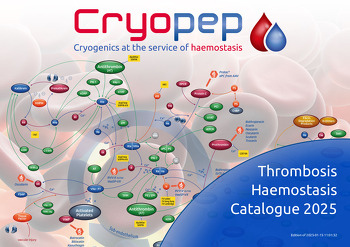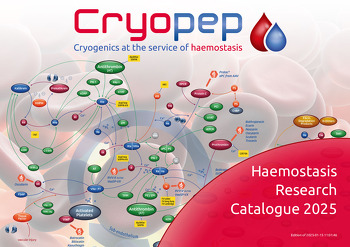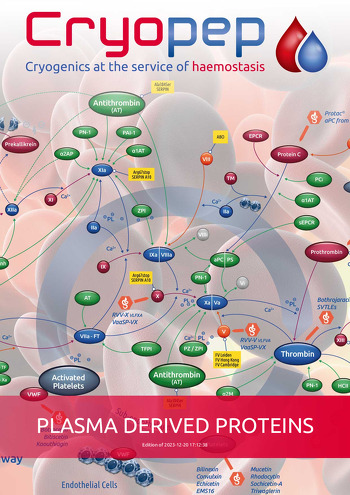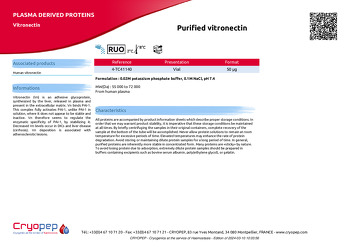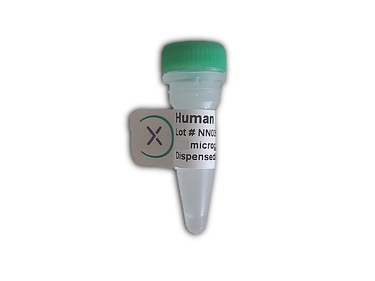HEMOSTASIS COAGULATION RESEARCH REAGENTS PLASMA DERIVED PROTEINS VITRONECTIN
Purified vitronectin
Formulation : 0.02M potassium phosphate buffer, 0.1M NaCl, pH 7.4
MW(Da) : 55 000 to 72 000
From human plasma
Informations
Vitronectin (Vn) is an adhesive glycoprotein, synthesized by the liver, released in plasma and present in the extracellular matrix. Vn binds PAI-1. This complex fully activates PAI-1, unlike PAI-1 in solution, where it does not appear to be stable and inactive. Vn therefore seems to regulate the enzymatic specificity of PAI-1, by stabilizing it. Decreased Vn levels occur in DICs and liver disease (cirrhosis). Vn deposition is associated with atherosclerotic lesions.
Documentation
Download the product sheetPrice list, safety data sheets and notices are accessible to our registered customers.
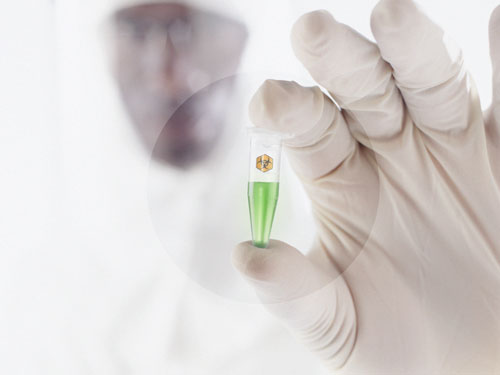




References
| 4-TC41140 | Vial | 50 µg |












